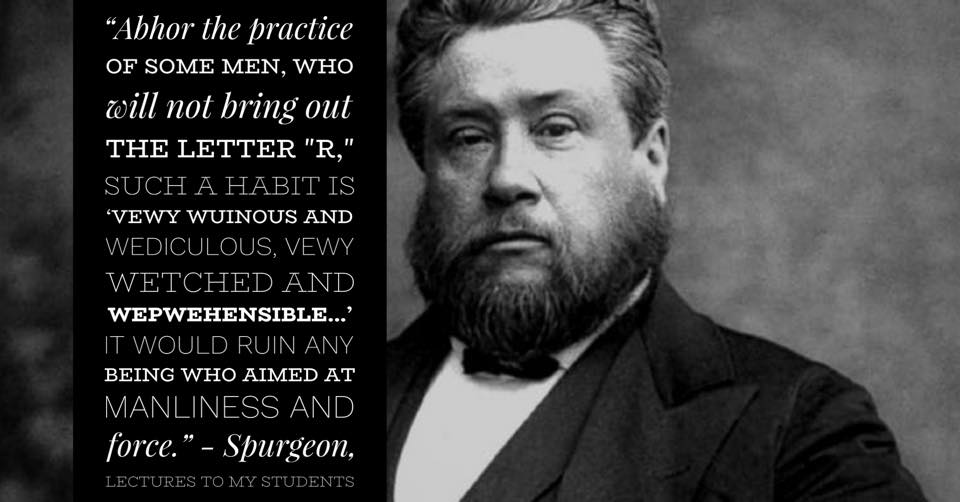
Abhor the practice of some men, who will not bring out the letter “r,” such a habit is ‘vewy wuinous and wediculous, vewy wetched and wepwehensible’… it would ruin any being who aimed at manliness and force. I can scarcely conceive of Elijah lisping to Ahab, or Paul prettily chipping his words on Mars’ hill.
Why are so many preachers non-manly men? Why do they have a tendency to look like they just fell out of a GAP commercial? RC asked a similar question in the post Why Do So Many Worship Leaders Look So Gay?
The fact is, the church is plagued with modern preachers that don’t have the power of presence or voice. They act more like sheep than with the commanding presence of shepherds.

These types of men have coiffed hair, manicured nails, skinny jeans, buttoned-down shirts, limp wrists, and have a tendency to “preach” sitting down. One wonders if, without amplification, they could be heard at all.
Far from roaring lions, they are kittens, who must have a Brittney Spears mic in order for the audience to hear their purring.
Indeed, Spurgeon thought a preacher should be manly.
In Lectures to My Students, Spurgeon argued that preachers should be able to command presence and speak loudly and project their voice to the audience and have a commanding presence.
Gentlemen with narrow chests are advised to use the dumb-bells every morning, or, better still, those clubs which the College has provided for you. You need broad chests, and must do your best to get them.
Furthermore, Spurgeon argued that a good preacher should be able to project their voice, and not be soft-spoken.
I know a man who weighs sixteen stone, and ought to be able to be heard half-a-mile, who is so gracelessly indolent, that in his small place of Worship you can scarcely hear him in the front of the gallery. What is the use of a preacher whom men cannot hear? Modesty should lead a voiceless man to give place to others who are more fitted for the work of proclaiming the messages of the King.
Neither should preachers, in any ideal sense, be impeded in speech irregularities, especially those that are easily treatable.
Abhor the practice of some men, who will not bring out the letter “r,” such a habit is “vewy wuinous and wediculous, vewy wetched and wepwehensible.” Now and then a brother has the felicity to possess a most winning and delicious lisp. This is perhaps among the least of evils, where the brother himself is little and winning, but it would ruin any being who aimed at manliness and force. I can scarcely conceive of Elijah lisping to Ahab, or Paul prettily chipping his words on Mars’ hill.
While Moses apparently had a problem speaking, he also had an Aaron to do his talking. Spurgeon would argue that if such is the case, it would be wise for Moses to descend the pulpit and Aaron to take his place.
Not everyone is called to preaching.
However, Spurgeon gave hope that all speech problems can be overcome with enough practice, and that preachers should labor at perfecting their voice.
We are bound to add—endeavor to educate your voice. Grudge no pains or labor in achieving this, for as it has been well observed, “However prodigious may he the gifts of nature to her elect, they can only be developed and brought to their extreme perfection by labor and study…We are bound to use every possible means to perfect the voice by which we are to tell forth the glorious gospel of the blessed God..Take great care of the consonants, enunciate every one of them clearly; they are the features and expression of the words. Practice indefatigably till you give every one of the consonants its due; the vowels have a voice of their own, and therefore they can speak for themselves.
If we are called to proclaim the excellencies of God’s Word, we should do so like men, and do so with the thunder that always accompanies lightning.











